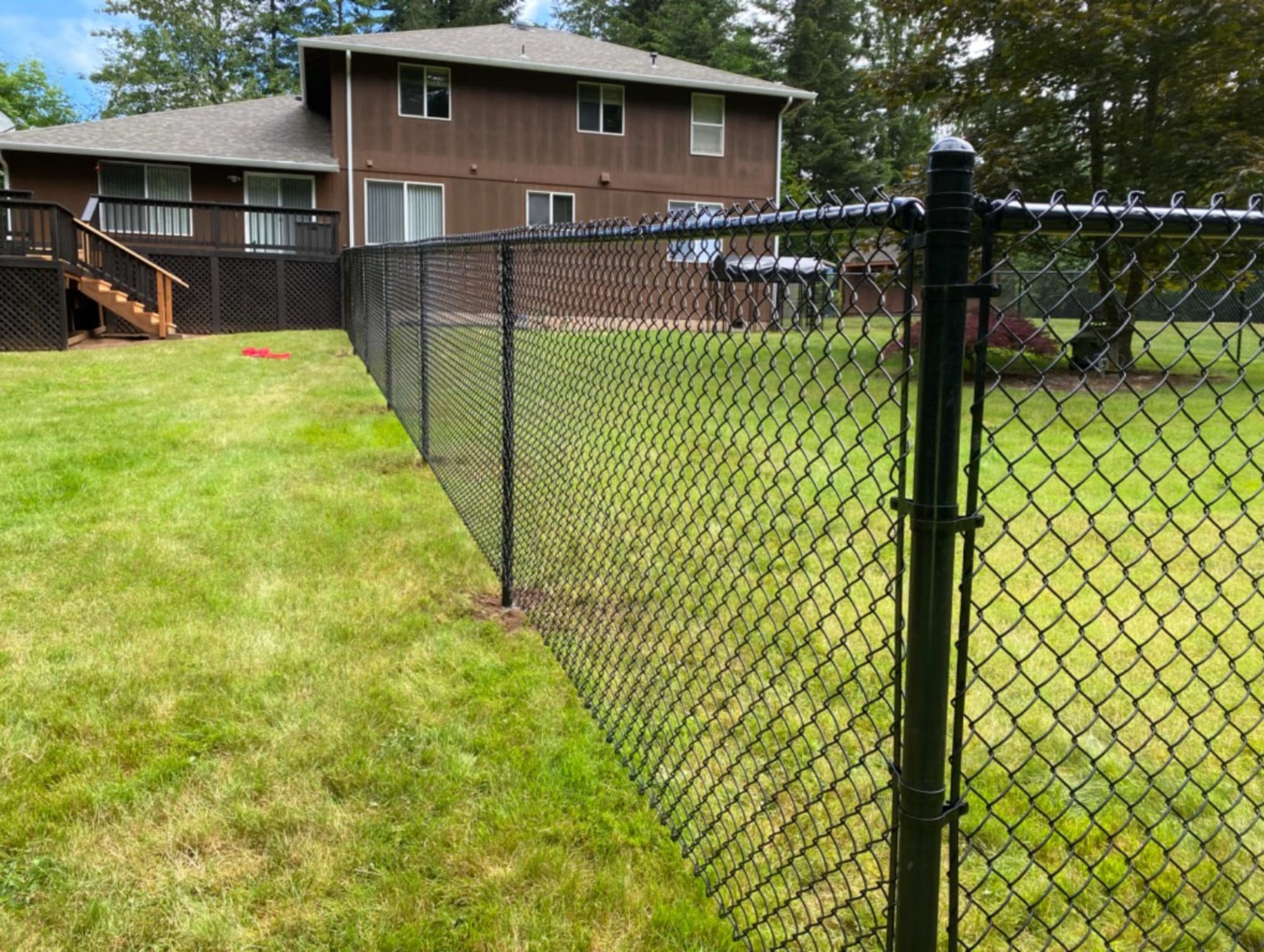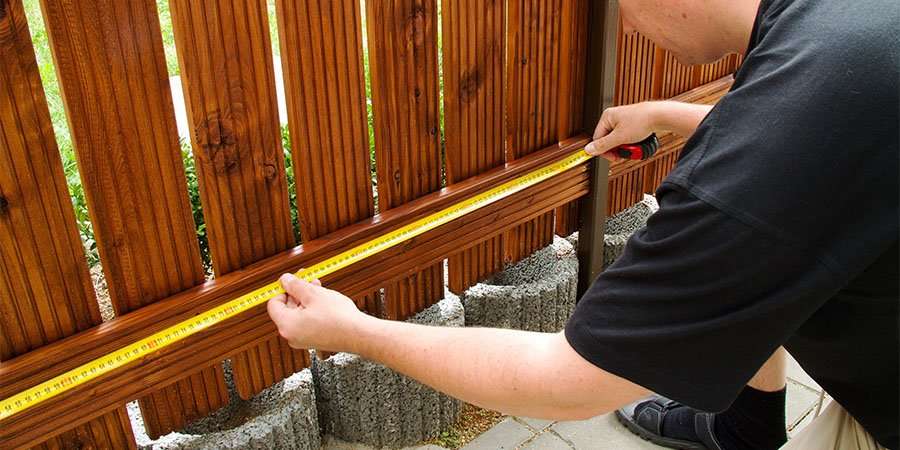All Categories
Featured
Picking the best fence for your residential or commercial property entails cautious consideration of performance, looks, budget, and long-lasting maintenance. Whether you're aiming to enhance personal privacy, improve curb allure, or secure your residential or commercial property, understanding your alternatives will assist you make an educated decision. Below's a detailed overview to selecting the excellent fencing for your needs.
![]()
Personal Privacy: Tall, solid fencings like timber or vinyl are optimal for obstructing visibility. Security: Sturdy products like aluminum or steel provide a safe and secure obstacle. Aesthetic Charm: Attractive fences, such as functioned iron or picket styles, improve visual allure. Containment: For youngsters or pets, fences like chain-link or vinyl are sensible options. Sound Reduction: Dense products, such as composite fence, can aid moisten noise. Plainly identifying your goals will narrow down your options significantly.
Timber: Offers a natural, classic look and is extremely customizable however calls for normal maintenance. Plastic: Low maintenance and long lasting however may have a greater preliminary expense. Light weight aluminum: Lightweight, rust-resistant, and elegant, though not suitable for personal privacy. Chain-Link: Economical and useful yet does not have visual appeal and personal privacy. Wrought Iron: Attractive and durable yet can be costly and calls for upkeep. Composite: A blend of timber and plastic, offering durability with a wood-like look. Choose a material that straightens with your priorities and matches your home's design.
![]()
Reduced Maintenance: Plastic, light weight aluminum, and composite fences need periodic cleansing. Modest Upkeep: Wrought iron fences might require repainting to avoid rust. High Upkeep: Wood fencings need regular discoloration, sealing, or painting. Think about just how much effort and time you're willing to buy maintenance for many years.
A picket fencing suits a typical home. A modern-day building may look finest with sleek, minimal secure fencing materials like vinyl or metal. A rural residential property may benefit from rustic timber or split-rail fence. 7. Seek Specialist Guidance. Consulting a secure fencing specialist can help ensure you choose the right material, layout, and installment procedure for your residential or commercial property. Experts can analyze elements like soil slope, kind, and climate to advise one of the most appropriate alternatives.
Verdict. Choosing the appropriate fencing for your residential property includes balancing capability, aesthetic appeals, and price. Beginning by determining your goals, discovering materials, and taking into consideration maintenance and budget. With thoughtful planning and specialist recommendations, you can discover the excellent fence to improve your property's value, security, and appeal for years to come.
- Define Your Purpose. The primary step in selecting a fencing is determining why you require one. Usual objectives include:

Personal Privacy: Tall, solid fencings like timber or vinyl are optimal for obstructing visibility. Security: Sturdy products like aluminum or steel provide a safe and secure obstacle. Aesthetic Charm: Attractive fences, such as functioned iron or picket styles, improve visual allure. Containment: For youngsters or pets, fences like chain-link or vinyl are sensible options. Sound Reduction: Dense products, such as composite fence, can aid moisten noise. Plainly identifying your goals will narrow down your options significantly.
- Think About Material Options. Each fence material has distinct top qualities, benefits, and downsides. Below's a fast overview:
Timber: Offers a natural, classic look and is extremely customizable however calls for normal maintenance. Plastic: Low maintenance and long lasting however may have a greater preliminary expense. Light weight aluminum: Lightweight, rust-resistant, and elegant, though not suitable for personal privacy. Chain-Link: Economical and useful yet does not have visual appeal and personal privacy. Wrought Iron: Attractive and durable yet can be costly and calls for upkeep. Composite: A blend of timber and plastic, offering durability with a wood-like look. Choose a material that straightens with your priorities and matches your home's design.

- Factor in Maintenance Requirements. Various fencing products require differing levels of care:
Reduced Maintenance: Plastic, light weight aluminum, and composite fences need periodic cleansing. Modest Upkeep: Wrought iron fences might require repainting to avoid rust. High Upkeep: Wood fencings need regular discoloration, sealing, or painting. Think about just how much effort and time you're willing to buy maintenance for many years.
- Evaluate Your Spending plan. Fence costs include both materials and installment. While chain-link and wood are typically a lot more cost effective in advance, materials like vinyl and light weight aluminum might save cash in the future as a result of decreased maintenance requirements. Additionally, consider potential upgrades, such as entrances or decorative components, when establishing your budget.
- Examine Neighborhood Regulations and HOA Rules. Before settling your option, consult neighborhood zoning regulations and home owner association (HOA) guidelines. Some locations have elevation constraints, product restrictions, or layout guidelines that may affect your decision.
- Suit the Fencing to Your Residential or commercial property's Design. The design of your fencing need to match your home and landscape. For instance:
A picket fencing suits a typical home. A modern-day building may look finest with sleek, minimal secure fencing materials like vinyl or metal. A rural residential property may benefit from rustic timber or split-rail fence. 7. Seek Specialist Guidance. Consulting a secure fencing specialist can help ensure you choose the right material, layout, and installment procedure for your residential or commercial property. Experts can analyze elements like soil slope, kind, and climate to advise one of the most appropriate alternatives.
Verdict. Choosing the appropriate fencing for your residential property includes balancing capability, aesthetic appeals, and price. Beginning by determining your goals, discovering materials, and taking into consideration maintenance and budget. With thoughtful planning and specialist recommendations, you can discover the excellent fence to improve your property's value, security, and appeal for years to come.
Latest Posts
Explore Reduce Expenses on Car Maintenance with Montclare Auto Repair’s Exclusive Deals
Published May 25, 25
1 min read
Unlock Your Financial Partner at WyHy – Key Advantages for Your Money Goals
Published May 24, 25
1 min read
How Consistent Auto Maintenance at Montclare Auto Repair Saves You Money
Published May 22, 25
1 min read
More
Latest Posts
Explore Reduce Expenses on Car Maintenance with Montclare Auto Repair’s Exclusive Deals
Published May 25, 25
1 min read
Unlock Your Financial Partner at WyHy – Key Advantages for Your Money Goals
Published May 24, 25
1 min read
How Consistent Auto Maintenance at Montclare Auto Repair Saves You Money
Published May 22, 25
1 min read